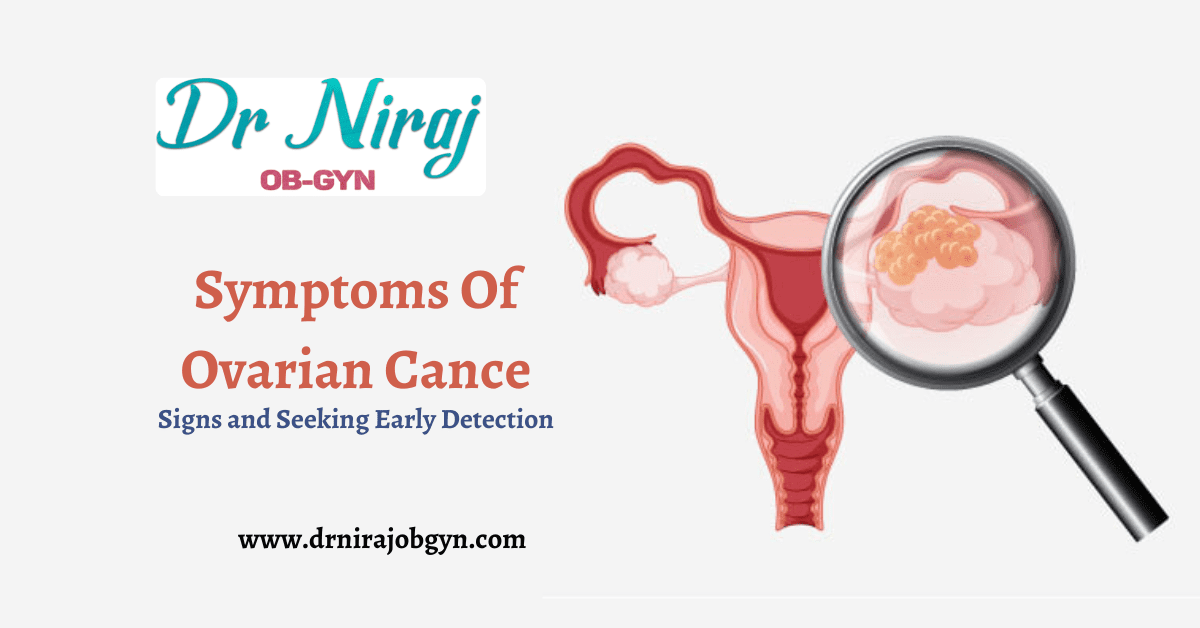
Symptoms Of Ovarian Cancer: Understanding the Signs and Seeking Early Detection
symptoms of ovarian cancer: Ovarian cancer is often referred to as the “silent killer” due to its subtle symptoms, which can easily be mistaken for other less severe conditions. However, understanding the signs and symptoms of ovarian cancer is crucial for early detection and successful treatment.
In this article, we’ll delve into the various symptoms of ovarian cancer, shedding light on this often overlooked but deadly disease.
Are you aware of the symptoms of ovarian cancer? Learn about the signs, risk factors, and preventive measures in this comprehensive guide. Early detection can save lives.
Recognizing Symptoms Of Ovarian Cancer
-
Pelvic Pain and Pressure
Pelvic pain and pressure are common symptoms of ovarian cancer. Women may experience persistent discomfort or a feeling of fullness in the pelvic area, often accompanied by bloating.
-
Abdominal Pain
Abdominal pain, particularly in the lower abdomen or pelvic region, can be a warning sign of ovarian cancer. This pain may be chronic and not alleviated by over-the-counter medications.
-
Changes in Bowel Habits
Ovarian cancer can affect bowel function, leading to changes in bowel habits such as constipation, diarrhea, or alternating between the two.
-
Urinary Symptoms
Frequent urination, urgency, or difficulty emptying the bladder are symptoms that may indicate ovarian cancer, especially when they occur suddenly and persistently.
-
Unexplained Weight Loss
Unexplained weight loss, especially when accompanied by other symptoms such as abdominal pain and bloating, should raise suspicion for ovarian cancer.
-
Loss of Appetite
A sudden loss of appetite or feeling full quickly even after eating small amounts can be indicative of ovarian cancer, especially when it persists over time.
-
Fatigue
Fatigue that is not alleviated by rest or changes in sleep patterns is another symptom that may signal ovarian cancer. It can be debilitating and affect daily activities.
-
Changes in Menstrual Cycle
Irregularities in the menstrual cycle, such as heavy bleeding or spotting between periods, can sometimes be early signs of ovarian cancer, especially in postmenopausal women.
-
Pain During Intercourse
Pain or discomfort during sexual intercourse, known as dyspareunia, can be a symptom of ovarian cancer, particularly when it is persistent and not related to other causes.
-
Abdominal Swelling
Abdominal swelling or bloating that persists for more than a few weeks, especially if accompanied by other symptoms, should prompt further evaluation for ovarian cancer.
-
Back Pain
Persistent back pain, especially in the lower back, can be a less common but still possible symptom of advanced ovarian cancer, particularly if it is not related to other musculoskeletal issues.
-
Nausea and Indigestion
Chronic nausea, indigestion, or feeling bloated after eating small amounts can be early signs of ovarian cancer, especially when they occur frequently and are not relieved by antacids or dietary changes.
-
Difficulty Eating
Difficulty eating or feeling full quickly, even when consuming small portions of food, can indicate ovarian cancer, especially when accompanied by other symptoms such as abdominal pain and bloating.
-
Swollen or Bloated Abdomen
A swollen or bloated abdomen, often described as feeling “full” or “heavy,” can be a sign of ovarian cancer, especially when it persists for more than a few weeks.
-
Loss of Energy
A sudden loss of energy or feeling unusually tired, even after adequate rest, can be indicative of ovarian cancer, especially when it is accompanied by other symptoms such as abdominal pain and bloating.
Frequently Asked Questions (FAQs): Symptoms Of Ovarian Cancer
Q:1. What are the risk factors for ovarian cancer?
A: Risk factors for ovarian cancer include a family history of the disease, inherited genetic mutations (such as BRCA1 and BRCA2), age (risk increases with age), and certain reproductive factors (such as never having children or starting menstruation at an early age).
Q:2. Can ovarian cancer be prevented?
A: While there is no guaranteed way to prevent ovarian cancer, certain lifestyle factors may reduce the risk, such as maintaining a healthy weight, using oral contraceptives, having multiple pregnancies, and undergoing tubal ligation or hysterectomy.
Q:3. How is ovarian cancer diagnosed?
A: Ovarian cancer is typically diagnosed through a combination of imaging tests (such as ultrasound or CT scan), blood tests (such as CA-125), and tissue biopsy obtained through surgery.
Q:4. What are the treatment options for ovarian cancer?
A: Treatment for ovarian cancer may include surgery to remove the tumor and affected tissue, chemotherapy, targeted therapy, and radiation therapy, depending on the stage and type of cancer.
Q:5. What is the prognosis for ovarian cancer?
A: The prognosis for ovarian cancer depends on various factors, including the stage at diagnosis, the type of cancer, and the individual’s overall health. Early detection and treatment can significantly improve survival rates.
Conclusion
In conclusion, being aware of the symptoms of ovarian cancer is crucial for early detection and successful treatment. By recognizing the signs and seeking prompt medical attention, individuals can improve their chances of survival and quality of life. If you or someone you know experiences any of the symptoms mentioned in this article, it is important to consult a healthcare professional for further evaluation and guidance.
Also Read: A Complete Guide on PCOS and PCOD – By Datuk Dr. Niraj
